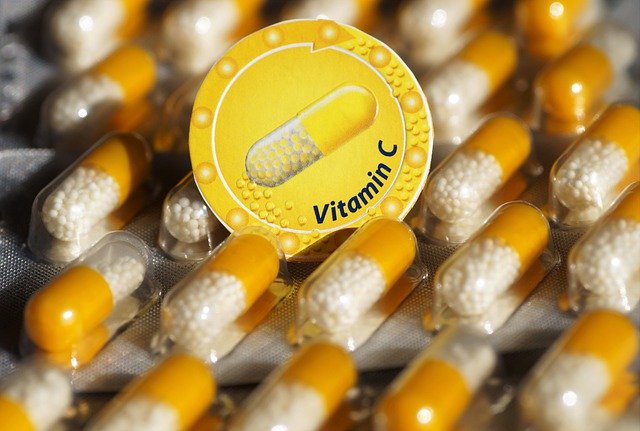Ascorbic acid is very necessary in everyone’s diet. From infants to older adults need to consume vitamin C to maintain a proper immune balance. This wonderful nutrient is water-soluble; That is, it can be easily dissolved in water, and we find many foods naturally. As many claims, its main action in the body is an antioxidant; Because it helps preserve cells against possible damage caused by famous free radicals and the cellular wear they cause in all tissues. However, too much vitamin C could become very harmful.

Some pharmaceutical forms of vitamin C supplementation come along with other supplements such as zinc. In this way, people deliberately buy and consume these supplements without a prescription without having the slightest idea of the risk this poses; coming to appear of neutropenia, anemia, gastrointestinal complications or kidney stones.
Instructions for taking vitamin C 1000 IU
Vitamin C of 1000 IU can only be consumed through supplementation; Since if you wanted to reach that amount naturally you would have to eat approximately two kilos of oranges or 4 kilos of lettuce a day, which is quite exaggerated and even impossible. The action of this vitamin in the tissues is based on strengthening the protein responsible for producing layers in the skin, part of the tendons, segments in the ligaments and forming blood vessels. This is essential for the body to heal wounds properly, forming its own tissue for healing. In addition, it helps repair cartilage, bones and teeth. The lack of vitamin C in the diet can lead to weakness in general, anemia in a short time, gingivitis, being more vulnerable to viruses and skin bleeding. However, it is scientifically proven that consuming mega doses of vitamin C through dietary supplements produces interaction with other nutrients; This causes a kind of shock that does not allow to absorb well all the nutritional contributions of food.
It is true that those who consume adequate amounts of vitamin C from fruits and vegetables are less at risk of suffering fromseveral types of cancer, such as uterine, lung, breast or colon cancer. However, it is already known that supplementation does not have the same effect oncancer prevention. Therefore, it is not known for sure whetherconsuming high doses of vitamin Cis actually beneficial for some type of cancer treatment; not even in mega doses through intravenous injections. All this, despite the fact that there is evidence from animal experiments that indicate that mega doses of vitamin C in blood (not taken) reduce the size of certain cancerous tumors.
What do you need to take 1000 IU vitamin C?
The most effective sources of vitamin C are always going to be fruits and vegetables. Supplements, on the other hand, are often not completely absorbed or are blocked by other nutrients present in our diet or in the supplementation tablets themselves. For example: The famous citrus fruits cannot miss: orange and lemonare the most popular, but kiwi, peppers and tomatoes, strawberries, asparagus, lettuce, beans, broccoli and pineapple are very good sources too.
Tips for taking vitamin C from 1000 IU
It is important to take into account that once cooked food for a long time could decrease its vitamin C content; Therefore, it is better to consume them steamed, using microwaves, baking or consuming raw. Although it has always been heard that taking vitamin C while going through a cold is good; The truth is that the consumption of this nutrient in the viral period does not improve the symptoms. Not even in cases of Covid-19 vitamin C in high doses improves the patient. The recommended dose of vitamin C for adults and adolescents if they have a very large vitamin C deficiency is not more than 1000 IU per day intravenously; since in digestion there may be blockages in the absorption of this nutrient by others and not get to take advantage of all the content. In children under 14 years of age, doses of 1000 IU are not recommended in any case, because there are insufficient data on side effects or developmental effects that may occur. Mega doses of vitamin C can have strong adverse effects if consumed without a prescription. For example, chronic diarrhea, severe nausea and vomiting that can develop into gastritis. Too much vitamin C may damage internal tissues by causing an increase in the amount of iron in the body. Vitamin C supplements usually come with zinc; Therefore, if the dose of zinc is exceeded you can suffer from strong colic, diarrhea and vomiting that can cause colitis. It even interferes with the bioavailability of copper in the intestine, which can cause hypochromic anemia. Finally, if you are an oncological patient, it is vital to consult with your doctor any type of supplementation you are consuming; because some antioxidants, including vitamin C, may interact with radiation therapy and chemotherapy treatments. Also, if you suffer from hemochromatosis, you should consume vitamin C very carefully in your daily diet, and only use supplements if your doctor indicates it.